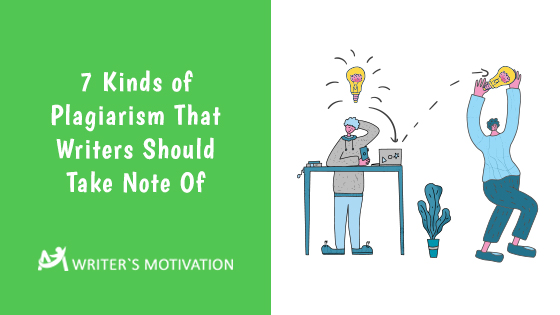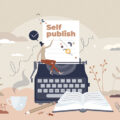7 Kinds of Plagiarism That Writers Should Take Note Of

A key aspect of being an effective writer is to make your work as original as possible. If your work has any elements that are from other content, this could lead to trouble. You could be accused of plagiarism, which is a serious accusation case for any writer. It may even lead to legal action from the accusing party. Aside from avoiding the act of plagiarism, you should also know the types of plagiarism because it could also be done to you as well. Finding out whether your work has been plagiarized is a bit tricky, so you should know the definition of plagiarism and its different types.
What is Plagiarism?
It is the act of passing of another writer’s content as one’s own. This could be done intentionally and unintentionally. There are also times where an author references another writer’s work without giving him or her due credit. As a writer, it is important that you steer clear of plagiarism because it will not only insult another writer, it may also destroy your credibility as a writer.
If you are going to keep your work as original as possible, you should know that there are many forms that plagiarism could take, and you may be doing it without knowing.
Here are seven kinds of plagiarism that writers should be aware of.
1. Paraphrased plagiarism
This type of plagiarism is a very sneaky one, and most writers don’t know that it is actually plagiarism. In layman’s term, it is the act of using another writer’s ideas and paraphrasing it to sound differently, yet the key concepts are still the same.
2. Self-Plagiarism
This kind of plagiarism is not harmful to other writers because you are only citing your own content. However, this could still damage your reputation as a writer, because it may make your work seem repetitive.
3. Direct Plagiarism
When it comes to plagiarism, there are few types that are as callous and glaring as direct plagiarism. This type of plagiarism is committed when you copy entire paragraphs or even chapters from the works of another writer. This is one of the easiest types of plagiarism to spot.
4. Patchwork Plagiarism
This type of plagiarism does not take entire paragraphs or chapters from an unauthorized source. Instead, it is the act of taking snippets or phrases from a source without asking permission or at least citing them. It is called patchwork plagiarism due to the plagiarized content being interwoven into the offending writer’s content, making it hard to discern which part is the original, and which is plagiarized.
5. Accidental Plagiarism
When you write, you should make sure to double check every aspect of your work. While you may not want to commit plagiarism, there will still be times where you will commit plagiarism without even knowing it. This is known as accidental plagiarism, and this happens more times than you would expect.
6. Source based plagiarism
Aside from copying sentences or even chapters from other writers, you could also be accused of source based plagiarism. This kind of plagiarism happens when you reference an inaccurate source or a source that does not really exist. If you are going to research for your work, you should make sure that all your sources are trustworthy.
7. Complete Plagiarism
Of all the types of plagiarism, this is by far the most glaring. To commit this kind of plagiarism is to ignore any form of propriety as a writer, and just copying the work of another writer. This is very grave because you stand to earn money and acclaim from the work of others. The content could be a manuscript, article or a short story.
How do you avoid plagiarism?
Plagiarism is a very serious offense because it could destroy your reputation as a writer, and could even lead to legal action against you. If you want to avoid plagiarizing other people’s work, you should double check your content before releasing them to the public. Make sure to check them through various plagiarism apps, and if you are going to use phrases from other writers, you should ask permission first or cite them.
Conclusion
If you want your book to be as original as possible, it is important that you take note of the type of plagiarism that you could commit. With these tips, you’ll know what plagiarism mistakes to avoid.
Recommended Posts
GETTING PUBLISHED
WRITING
PUBLISHING
MARKETING







